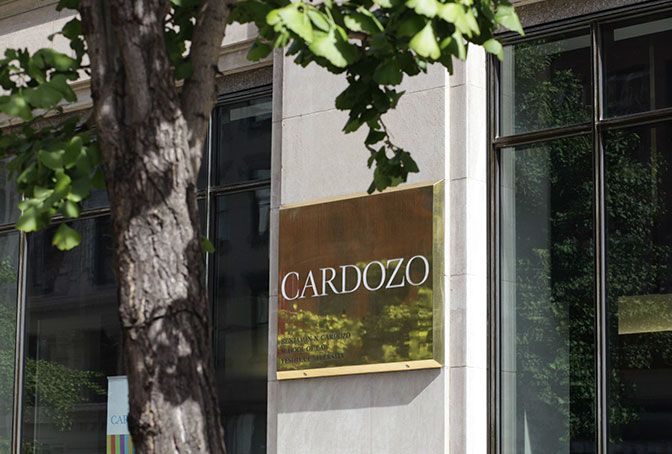
As we mark the anniversary of the wave of racial justice protests that swept the country in 2020 and the Juneteenth holiday, Cardozo is working to respond to the urgent call to teach students more about race and racism.
The Cardozo Law Institute in Holocaust and Human Rights (CLIHHR) has just released a downloadable Teaching Guide on Reparations, a flexible (free) resource that can be adapted for introductory courses or upper-level seminars, class discussions, exam materials, and more. It helps students understand what reparations are, how a tort claim could possibly redress the harms of slavery, how these claims have fared in court, and other paths Black Americans can use to achieve redress for atrocities suffered. Legal educators across the country can access to the guide to incorporate its lessons into their courses.
This module joins 10 others in the Confronting Structural Violence: Law Teaching Guides project, which includes Guides covering constitutional law, international law, criminal law, corporations, and IP. The guides are open access course resources for professors to incorporate today’s legal issues into the courses they teach, tapping into students’ passions while training them to recognize and respond to structural violence and human and civil rights violations across practice areas.
Using this law teaching guide enables students to:
1. Understand the term “reparations” and learn about their use in redressing past atrocities.
2. Contextualize and problematize the nature of a tort claim that seeks to redress the harms of slavery.
3. Learn about previous unsuccessful claims for slavery reparations and ponder different methods that Black Americans can use to achieve redress for atrocities suffered.
4. Analyze other contexts where U.S. courts have weighed in on reparations, including Japanese internment and Native American genocides, and connect these to current and historical claims for slavery reparations.
5. Contemplate how racism and discrimination has served as a barrier to effective redress for the atrocities of slavery in the U.S. context.
Professor Jocelyn Getgen Kestenbaum, Director, Benjamin B. Ferencz Human Rights and Atrocity Prevention Clinic and Faculty Director, Cardozo Law Institute in Holocaust and Human Rights, said, “In a time when U.S. Senators are questioning critical race theory and other methods for countering systemic racism, the Confronting Structural Violence Law: Teaching Guides project is more important than ever. Addressing the legacies of atrocities that continue to perpetuate identity-based violence and discrimination must begin with an honest evaluation of legal reparations for slavery harms here at home. Launching this guide on the eve of Juneteenth, CLIHHR hopes to bring these discussions into law classrooms to move forward toward restorative justice, healing and transformative change.”
